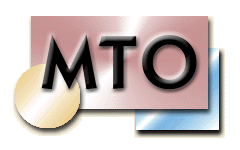Music Theory Online
The Online Journal of the Society for Music Theory

Music Theory OnlineThe Online Journal of the Society for Music Theory |
 |
Volume 6, Number 3, August 2000
Copyright � 2000 Society for Music Theory
Cambridge University Press, Adam Krims, Rap Music and the Poetics of Identity in the series
New Perspectives in Music History and Criticism
Adam Krims, Rap Music and the Poetics of Identity in the series New Perspectives in Music History and Criticism
This is the first book to discuss in detail how rap music is put together musically and how it contributes to the formation of cultural identities for both artists and audiences. It also argues that current skeptical attitudes toward music analysis in popular music studies are misplaced and need to be reconsidered if cultural studies are to treat seriously the social force of rap music, popular musics, and music in general. Drawing extensively on recent scholarship in popular music studies, cultural theory, communications, critical theory, and musicology, Krims redefines �music theory� as meaning simply �theory about music�, in which musical poetics (the study of how musical sound is deployed) may play a crucial role when its claims are contextualized and demystified. Theorizing local and global geographies of rap, Krims discusses at length the music of Ice Cube, the Goodie MoB, KRS-One, Dutch group the Spookrijders, and Canadian Cree rapper Bannock.
Chapter Contents
Introduction: music theory, musical poetics, rap music
1. Analyzing rap music
2. A genre system for rap music
3. The musical poetics of a �revolutionary� identity
4. Rap geography and soul food
5. Two cases of localized (and globalized) musical poetics
Bibliography
Discography.
[1] Music Theory Online (MTO) as a whole is Copyright � 2000, all rights reserved, by the Society for Music Theory, which is the owner of the journal. Copyrights for individual items published in MTO are held by their authors. Items appearing in MTO may be saved and stored in electronic or paper form, and may be shared among individuals for purposes of scholarly research or discussion, but may not be republished in any form, electronic or print, without prior, written permission from the author(s), and advance notification of the editors of MTO.
[2] Any redistributed form of items published in MTO must include the following information in a form appropriate to the medium in which the items are to appear:
This item appeared in Music Theory Online in [VOLUME #, ISSUE #] in [MONTH/YEAR]. It was authored by [FULL NAME, EMAIL ADDRESS], with whose written permission it is reprinted here.
[3] Libraries may archive issues of MTO in electronic or paper form for public access so long as each issue is stored in its entirety, and no access fee is charged. Exceptions to these requirements must be approved in writing by the editors of MTO, who will act in accordance with the decisions of the Society for Music Theory.
prepared by
Brent Yorgason, editorial assistant
Updated 14 November, 2002